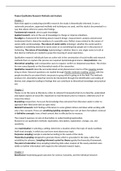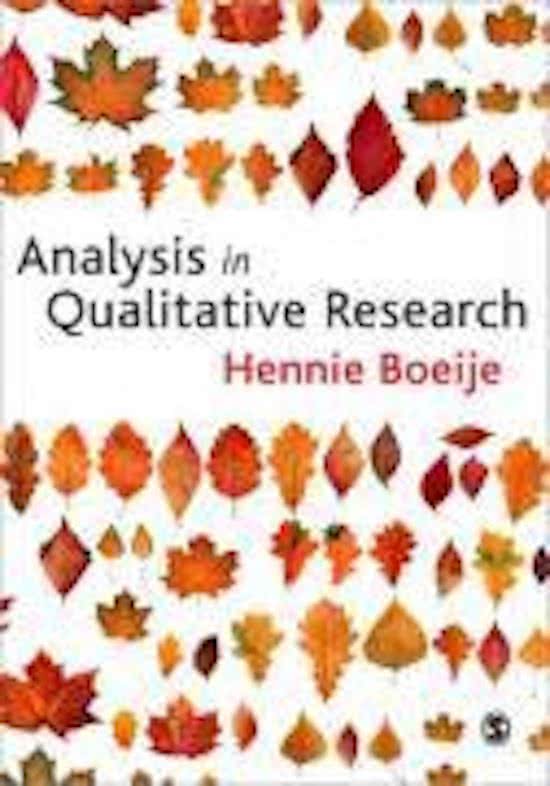Samenvatting
Summary Endterm Project Qualitative Research Methods and Analysis (PQRM), Chapter 1-10. Grade: 9
- Instelling
- Universiteit Van Amsterdam (UvA)
Summary of the entire book "Analysis in Qualitative Research" - Hennie Boeije. Chapter 1-10.
[Meer zien]





